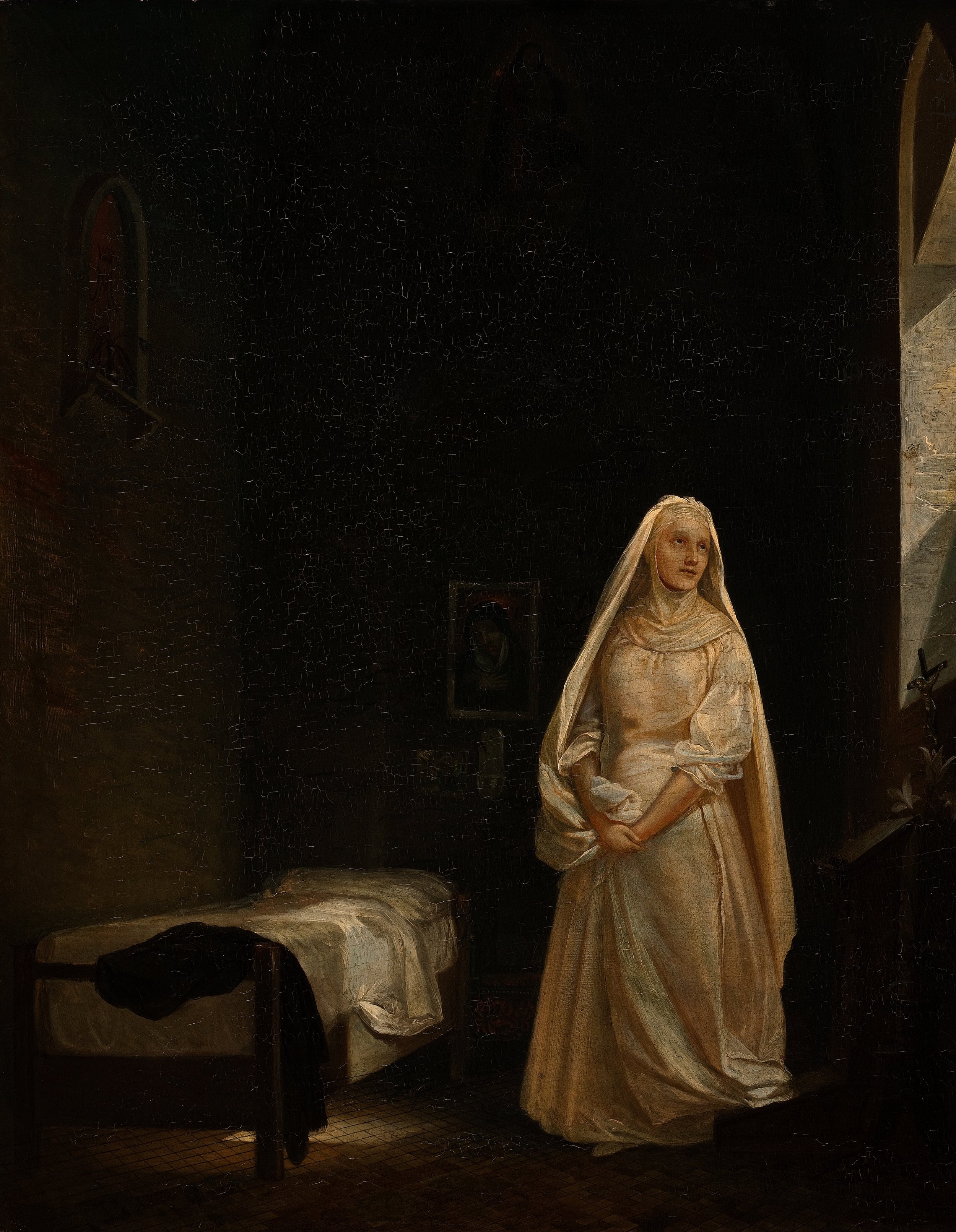Grace at Mount Doom

Grace at Mount Doom
Ryan Diaz
Frodo stood at the edge of Orodruin and stared into the gaping, molten maw below. He had come to the end of his journey—finally, the end of the reign of the Ring and its master was at hand. I watched with horror as Frodo withdrew his hand and clutched the Ring to his chest before slipping the gold band onto his finger. The sky grew grim and I put the book down in shock. Frodo was the hero, the suffering servant, and I could not fathom why Frodo failed. At eleven years of age, I was trained to believe in heroes who triumphed over good and resisted temptation. In a brief moment, huddled on the couch under a blanket fort fit to rival Minas Tirith, Tolkien had shattered my world. I should have seen it coming.
It had become evident that no one was safe from the Ring's seductive whispers—not Bilbo, nor Gandalf, neither Boromir nor the Lady of the Wood, Galadriel. Each of them fell prey to the allure of the Ring and recognized their inability to carry its weight. Yet even as Frodo slipped into the dark hold of the Dark Lord, forced to cross the plains of Mordor with the weight of the Ring burning a bruise in his neck, I still believed that he would conquer. He would resist the Ring and bring Baradur to its knees.
But it was not so.
I picked the book back up and continued reading, and after I was done, I felt cheated. In the end, the Ring was destroyed by mere chance, done in by Gollum's greed. How could this be the end? It wasn't until later in my life I finally learned to appreciate Tolkien's twist and, in turn, better understand the role of grace in my own life.
While Tolkien denies any explicit allegorical connections in his work, he did describe his legendarium as "a fundamentally religious and Catholic work." Subtly woven into his tale is a rich and profoundly theological understanding of human nature and divine grace. Like the Hebrew story of Esther, God is wholly absent from Tolkien's fiction and yet he is also remarkably present. This is not just true of the Christian God but of the god of Tolkien's secondary world, Iluvatar.
In the Silmarillion, Iluvatar composes a symphony that results in the creation of Tolkien’s Secondary World, Middangeard or Middle Earth. The end of each age is already written. The tales of the Elves' birth, Numenor's fall, and the events that brought a young hobbit to the edge of the world are woven together in eternity past and set in stone. The story we read is a part of a larger story, a story already written, even though it unfolds for the reader and the residents of Middle Earth as a story that has yet to be told.
*
Fleming Rutledge, in her work, The Battle for Middle Earth, highlights the important role of providence in Tolkien's work and his guiding view of God’s role in history. For Tolkien, God is an active agent moving history according to His predestined purpose. He accomplishes this movement through free agents who exercise their freedom within the realm of His governance. The clockmaker—god of the deists—is not the God Tolkien envisions; Tolkien's God does not wind up the clock and let things spin. Like Gandalf, He is a guide, moving history toward its telos, to an already written end.
Where does Frodo’s failure fit in with Iluvatar’s divine plan? Frodo fails because, in the end, he is a creature—a mere mortal. The story follows the inner consistency of the rules set up by Tolkien for his secondary world. The ring answers to one master, and Frodo, for all his effort, valiant as it may have been, fails—because in the end, he does not have it within himself to resist the Ring. He is in a battle with forces that far outmatch him. No matter how well fought, a battle of the will is a battle that Frodo cannot win.
This reality put forward by Tolkien was the crux of why I found myself so upset as a young boy. It's why I put the book down and, in disgust, only hesitantly read on as Gollum does what Frodo should have done. I identified with Frodo—he was the protagonist and I identified with his story; like him, I was out of place in a magical world filled with elves, goblins, black riders, intelligent avian lords, and villainous dark powers. Fiction trains us to identify with the hero. As we read, we too embark on the hero's journey and import our lives into the quests we read about. I was shocked because, in reality, I knew I was faced with a stark portrait of myself and my own inability. In my own story, sin and death had its grip on my own soul, and despite my best efforts, I would capitulate, wave my white flag and give in to my new master.
And yet, despite it all, Frodo was not alone in the crags of Mount Doom. Something else far more potent than the Ring and Sauron was at work. Providence was moving. Iluvatar’s symphony would not be denied, and through Frodo's failure, redemption is accomplished for Middle Earth; a beautiful eucatastrophe is wrested out of the jaws of defeat.
Tolkien defined eucatastrophe as "the sudden joyous turn," a victory born from sorrow and forged in ruin. In this, Tolkien reveals the reality of grace—the entrance of God into human history to do for humanity what humanity had failed to do for itself. Frodo's failure is not final. Instead, Frodo's loss becomes a seedbed for "a sudden and miraculous grace."
Here, I recognized why Frodo needed to fail, because if he had succeeded, Tolkien would have deluded me (like many authors tend to do) into believing that in the end, my will would be enough. I would have left the story thinking that I had it within myself to resist the Dark Lord and his principalities and powers. Reality would then set in and I would be forced to face my failures without hope, for if Frodo had succeeded, there would be no hope for failures like me. The hero would have been an ideal I could never reach, Tolkien's story would be nothing more than fiction.
Tolkien was not interested in offering his readers an escapist fantasy. He was not in the business of deluding us. His stories were a protoevangelium; they contained within them what J.B. Phillips called "a ring of truth." Tolkien’s stories don’t distract us but instead call us to confront our limitations and our need for fellowship and divine grace.
If Frodo doesn't fail, we don’t get the gospel. We instead read another false tale that tells us all about human greatness while denying humanity's need for a savior. If Frodo did not fail, then we never learn of redemption, nor of the potency of grace, which can redeem both a friend's betrayal, given with a kiss, and the hasty words of a presumptuous disciple. Frodo’s failure is key to the deep catholicity of Tolkien's trilogy. Tolkien believed in the fall, and while he thought humans were capable of great good, he also understood that nature is destined for destruction without the aid of divine grace.
*
On the eve of 2020, I once again found myself in Hobbiton preparing for the long trek across Middle Earth to Mordor. Every year, since the age of eleven, I have taken the journey through Middle Earth in hopes that Tolkien might teach me something new. But this year was different—I began 2020 out of work. The plans I made to join the staff of a new church had fallen through. My wife and I were eating into our savings, and on top of everything else, COVID struck and devastated my family, robbing us of my grandmother within the first few weeks of the pandemic. I was sliding into a depression. I felt like I was failing God and my family. It was in this moment I turned again to Tolkien. I watched in horror as Frodo put on the ring, and once again, I watched as victory was snatched from the jaws of defeat by the most unlikely of saviors. I began to wonder what God could possibly work out of 2020. Then, suddenly, as if by chance, or some divine nudge, I picked up my pen. Up until that point, I hadn't written anything in years. But as soon as I grabbed the pen, the ink began to flow, and I watched as the pent-up years spilled onto the page like tears. 2020 ended up being the most productive year of my writing career. I was able to write half a novel, 200+ poems, and a handful of essays. I published 13 pieces of writing and launched a website to house my work. This was eucatastrophe, the sudden and joyous turn I did not expect. The pain of unemployment, isolation, and death was transformed into powerful verse and poignant prose.
As I write this, The Lord of The Rings sits on my bookshelf, and in silent prayer, I thank God for Tolkien. Through Frodo's failure, Tolkien opened my eyes to the possibility that, even in defeat, grace is abundant. He showed me that God can work through human inability to bring about a "sudden and joyous turn." My failures were not beyond redemption. Your losses are not beyond saving.
To look at Frodo and see ourselves is to see ourselves clearly, creatures in need of rescue and divine aid. God is not absent. He is with us in the crags of decision and in the fires of temptation, and though we seem to do all to thwart His purposes, He is graciously seeing them to their end. Now, all these years later, when I find myself at the edge of Amon Amarth with Frodo, I weep and smile, for I know even in failure, God's grace is working to bring about a sudden joy; a sudden joy that is unexpected yet planned; a beauty from the ashes; a victory from defeat; a eucatastrophe that turned a cross into a throne and man's failure into his freedom.
Ryan Diaz
Writer & Theologian
Ryan is a poet, writer, and theologian from Queens, NY. He is working on a poetry collection with Wipf & Stock entitled For Those Wandering Along the Way which is due to be released in the near future.
Photography by Philipp Pillz




